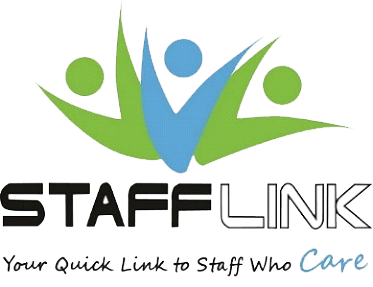The Ultimate Guide for Paying for Home Care Services in St. Louis, MO in 2022

You have many options to pay for home care services in St. Louis, MO. Some of your best options are listed below!
What type of Home Care Does Medicare Cover?
Medicare pays for forty-one (41) percent of home care services. Medicare is the federally funded health insurance available to individuals that are 65 or older. Medicare currently has no income eligibility parameters. Seniors can choose to subsidize their federally provided Medicare coverage with private insurance plans. Medicare pays for “home health care” that is for rehabilitation (improvement) purposes. Rehabilitation services include physical therapy (PT), occupational therapy (OT), and speech therapy (ST). Medicare home health services are also known as “intermittent’, “skilled”, or “rehab” services. The therapist must document that the patient is rehabbing well or improving for the services to continue. Medicare home health care is delivered in “visits”. Seniors and their families are often disappointed and surprised to discover that Medicare does not cover hourly private duty or “custodial” home care services.
Do Medicare Advantage Plans Pay for Home Care?
Medicare Advantage (MA) is one of the private plans that a senior can choose to augment their Medicare benefits. Medicare Advantage does pay for home health rehabilitation visits as discussed above. Since January 2019, Medicare Advantage plans have been federally authorized to provide custodial (hourly assistance by an aide) home assistance. This assistance is capped at 120 hours per year. Few Medicare Advantage plans in the St. Louis region have moved to offer this added benefit.
What Type of Home Care Does Medicaid Cover?
Twenty-four (24) percent of home care in the United States is paid for by Medicaid. Most hourly or custodial home care in the United States is paid for by Medicaid. Medicaid is a state-funded payer source that is partially funded by the federal government. Medicaid is for individuals that cannot afford to pay for home care services out of pocket. To be eligible for Medicaid you must meet strict financial parameters.
You will hear the custodial care provided through Medicaid also called “in-home” or “chore worker” services.
Hourly services through Medicaid are usually capped at 12-25 hours weekly. On a rare occasion will one be authorized to receive 40 hours weekly. One should not expect Medicaid to cover the cost of care for 24/7 in home care.
Our agency works closely with the State of Missouri in helping clients get authorization for these services. We have been a vendor of the State of Missouri for Medicaid since 1989, thereby making us one of the oldest providers of this service in the state. With advanced legal and financial planning, you can become eligible for future Medicaid benefits.
How Can a Family Member be Paid to Provide Home Care to a Family Member via Medicaid?
Consumer Directed Services (CDS) is a Missouri Medicaid option offered to consumers. To learn more please Click Here to visit our CDS page.
You might consider Consumer Directed Services (CDS) under the Missouri Medicaid umbrella if you meet the following qualifications:
- You are receiving or are eligible for Medicaid
- You are a least 18 years old
- You have a physical disability
- Living in an independent living situation
- Able and willing to recruit, hire and manage your own attendants
- Capable of directing your services by the caregiver (one’s cognitive ability is evaluated by a state employee)
Limitations regarding who you can choose to hire are:
- The caregiver must be at least 18 years old
- Must have a totally clean criminal record (no exceptions!)
- Cannot be your spouse
Once you recruit you own caregiver, you must select a company, like StaffLink – Consumer Directed Services, Inc, who is approved by the state of Missouri to “manage and oversee” these services.
What State and Local Government Agencies Pay for Home Care Services?
Other state and local agencies cover fifteen (15) percent of home services. Across the country and in the state of Missouri, some of the organizations under this umbrella are known as the Triple A’s or Area Agencies on Aging. In Missouri, organizations like Aging Ahead (formerly called the Mid-East Area Agency of Aging) or the St. Louis Area Agency on Aging (SLAAA) would fall under this category. Aging Ahead offers a respite care program and SLAAA offers a chore services program. Neither of these programs provide “hands-on” care. They do provide some assistance in the home.
Can I Pay for Home Care Out-of-Pocket?
Ten (10) percent of all home care is paid for “out-of-pocket”. The care is frequently called “private duty home care” because it is privately paid for out of pocket directly by the client. Services are generally provided 2 to 24 hours daily as required. Amongst industry professionals, you may hear private duty or private duty services referred to as “custodial” services. The majority of persons that are receiving around-the-clock home care are paying for it out-of-pocket or via a combination of out-of-pocket, combined with at long-term care insurance policy that they purchased years prior.
On a rare occasion, the term “private duty services” is used to describe services covered by some public funding sources, such as Medicaid for children and special needs clients.
How Does Long-Term Care Insurance (LTC) Pay for Home Care?
Private insurance pays for eight (8) percent of home care services. LTC insurance is one of several private insurances we will discuss.
More and more people will pay for home care and private duty services with LTC insurance. Typically, you can utilize your LTC benefits when there are ADLs (Activities of Daily Living) that you are no longer able to perform.
Examples of ADLs include walking, toileting, dressing, and feeding oneself. If you or a family member has an LTC insurance policy and have questions about when you can tap into your benefits, please call us immediately. Our Care Managers are very familiar with utilizing LTC benefits to pay for your needed care.
If you need hourly home care and you have a LTC policy in place, you are very, very fortunate.
LTC policies vary from policy to policy, from insurance company to insurance company. Policies generally are purchased to cover a specific dollar amount of long-term care per month. Many policies have an automatic inflation clause so the value per month increases year to year from the date of the purchase.
The best time to buy an LTC policy is between the ages of 30 to 55. The monthly premiums for LTC policies increase sharply in one’s 60s. It is almost impossible to be eligible or to qualify for a reasonably priced policy in one’s 70s and beyond.
What is Short-Term Home Care Insurance?
A relatively new option to pay for home care services is short-term home care insurance. These policies, unlike long-term care insurance which have a 90-day waiting period, generally have no waiting period before they kick-in to pay for care.
For that reason, these plans are also known as “recovery care”, because they can be used immediately after hospitalization to assist with paying for needed care.
Some of these plans only require your physician to confirm that assistance in the home is necessary, and not that you are unable to perform a specific number of ADLs.
Does General Health Insurance Cover All of My Home Care Needs?
Generally, individual or employer health policies will ONLY pay for home care that is related directly or indirectly to rehabilitation services, such as physical, occupational or speech therapy.
This care is always on a limited visit basis and is usually VERY short term. We have RARELY found exceptions to that rule, BUT we have found them.
If you have an insurance policy that states that it provides “home care” or “home health care” coverage, we will gladly speak with the claims department prior to initiating service to clarify the parameters of coverage, at no charge to you.
We speak their lingo and know what questions to ask to make sure you are not out of pocket for services that you believed were being reimbursed or paid for by your insurance plan.
Do Insurance Policies Offered by Affordability Act or Obama Care Cover Home Care?
Insurance policies offered via the Affordability Act or Obama Care, are very similar to a general health insurance plan offered via an employer. These plans will primarily pay for home care that is related directly or indirectly to rehabilitation services, such as physical, occupational or speech therapy that are delivered on a per visit basis for several weeks. Like a traditional employer health insurance plan, they will typically not cover any custodial or hourly home care services for an individual.
What Home Care does the Veterans Administration Cover?
Two (2) percent of home care is paid for by other sources. We are going to place the Veteran’s Administration in that grouping.
If you are a Veteran, you and your spouse might be eligible for home care benefits under TWO different programs. The Veterans Administration Home and Community Based (HCB) OR the Veterans Administration Aid and Attendance Benefit or Pension. To learn more please CLICK HERE to visit our Veterans page.
How Does One Qualify for the Veterans Administration Aid and Attendance Benefit or Pension?
- You or your spouse must be a veteran.
- You must be paying for care at the time you apply for the pension. This is known as the “care in place” requirement.
Here are some of the other qualifying requirements for the Aid and Attendance Pension. Some call these the three (3) M’s of qualifying:
- Military Requirement-The veteran must be considered a “wartime veteran”.
- Medical Requirement-The veteran must require help with “activities of daily living”.
- Money Requirement-The value of your home and car ownership are generally not eligibility hinderances. Assets that are not considered “excessive” are also not problematic.
The 2022 annual pension is capped as follows and covers an estimated hours of care per week:
- Solo Veteran $24,600 17 hrs per week
- Veteran with Spouse $29,172 20 hrs per week
- Surviving Spouse $15,816 11 hrs per week
How Does One qualify for the Veterans Administration Home and Community Based (HCB) Home Care Program?
If you are a veteran that is currently receiving your health care from the VA Health Care System and have a VA primary care doctor, you could qualify to receive immediate in-home assistance from the VA directly.
A veteran is eligible for both the Aid and Attendance Pension and the Home and Community Based program.
What Other Sources Cover or Pay for Home Care Services?
The list above is NOT all-inclusive. There are numerous other payment sources offered by non-profit and public sources that can help cover the cost of care in your home. Call the StaffLink office to talk to a professional about your individual situation.
https://mydss.mo.gov/home-community-based-programs
- Meet Ruth Chan - May 15, 2024
- Fourteen (14) Spring-break Activities for Seniors and Caregivers - March 28, 2024
- It’s Our Birthday! StaffLink Is 37 Years Old! - March 21, 2024
